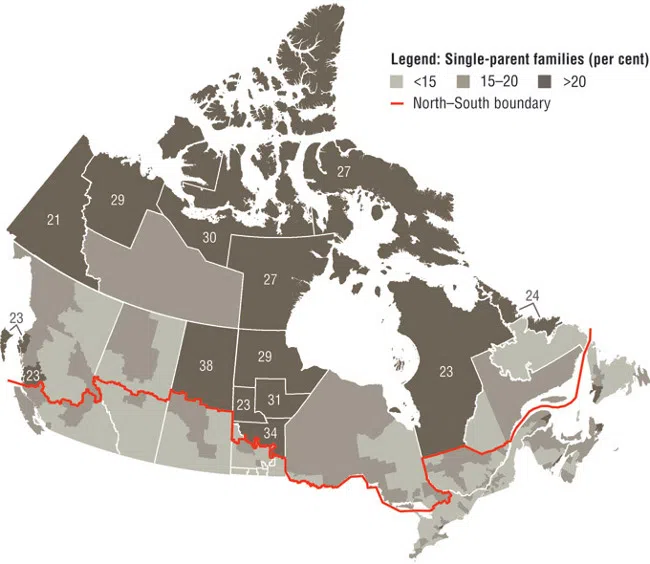
Single parent families common in North
More single parent families live in Northern Saskatchewan than anywhere else in the country.
“It is a point of concern,” said Gilles Rheaume, vice-president public policy and founder of Centre for the North, a research program designed to show the realities of living in the northern parts of Canada.
He is part of the research team that found that nearly 38 per cent of families living in Northern Saskatchewan, with Northern Manitoba next by less than four per cent.
Single parent families face major challenges and it creates greater challenges for communities trying to support them, Rheaume said.


